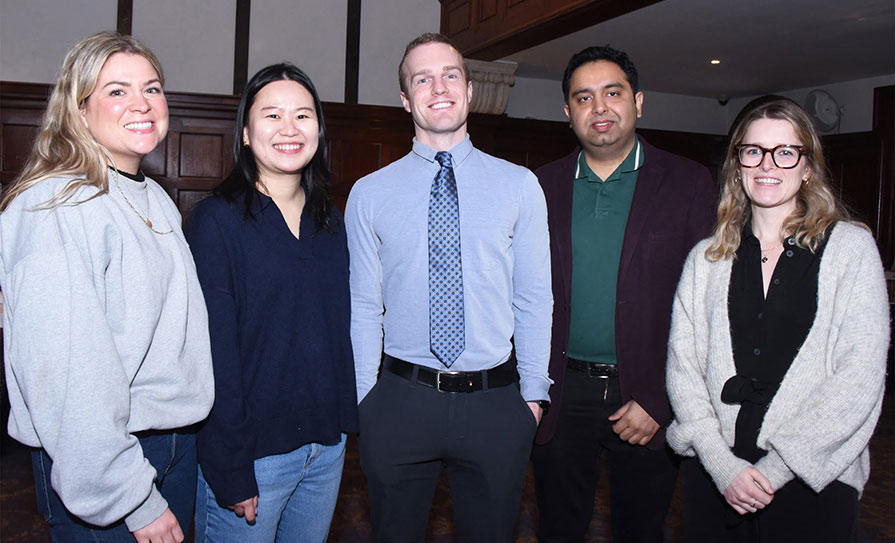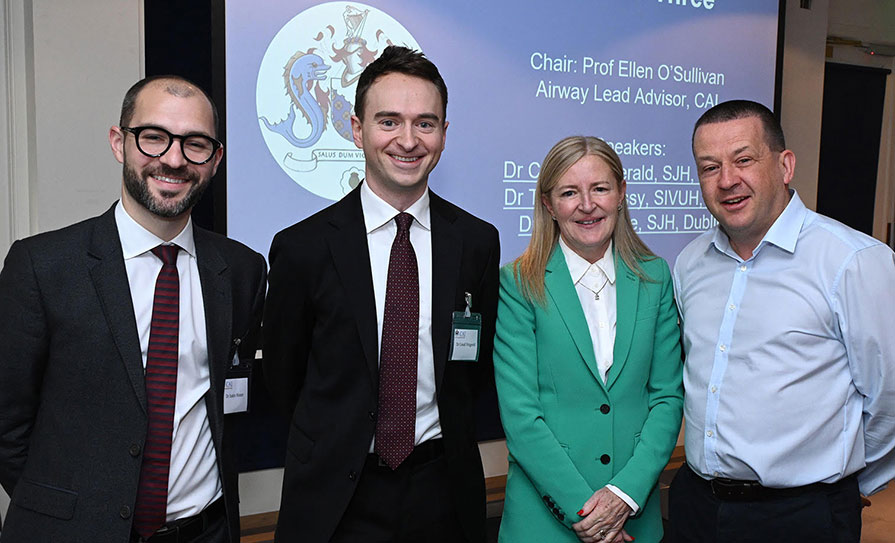HER2 amplification is found in 5 per cent of RAS wild type (RASWT) mCRC.
Dr Alessio Amatu, Consultant Medical Oncologist at the Niguarda Cancer Centre in Milan, Italy, presented details of the ground-breaking phase 2 clinical trial HERACLES, which assessed the response rate of trastuzumab combined with lapatinib (cohort A) or pertuzumab combined with trastuzumab-emtansine (cohort B) in mCRC patients harbouring amplified HER2 tumours.
Dr Amatu stated the combination of trastuzumab and lapatinib resulted in a 70 per cent clinical benefit, with an overall objective response rate of 30 per cent.
“HER2 and mCRC are primarily resistant to cetuximab or panitumumab, supporting the use of HERACLES therapy in anti-EGFR patients,” according to Dr Amatu.
Speaking to the <strong><em>Medical Independent </em></strong>(<strong><em>MI</em></strong>), Co Chair of the Symposium, Prof John Crown, Consultant Oncologist in St Vincent’s University Hospital, Dublin, said the results of the study were very exciting.
“Extending the benefits of anti-HER treatment to cancer outside of breast cancer is really interesting,” Prof Crown said.
“They achieved wonderful results for a minority of bowel cancer patients who have the HER2 target as well. They have received great benefit from anti-HER2 therapy.”
Also speaking at the Symposium was Prof Lajos Pusztai, Co-Director, Yale Cancer Centre Genetics, Genomics and Epigenetics Programme, US. His research group has made important contributions to establish that oestrogen receptor-positive and-negative breast cancers have fundamentally different molecular, clinical and epidemiological characteristics. He has been a pioneer in evaluating gene expression profiling as a diagnostic technology to predict chemotherapy and endocrine therapy sensitivity and has shown that different biological processes are involved in determining the prognosis and treatment response in different breast cancer subtypes.
Prof Pusztai’s group has also developed new bioinformatics tools to integrate information from across different data platforms in order to define the molecular pathways that are disturbed in individual cancers and could provide the bases for individualised treatment strategies. He made important contributions to clarify the clinical value of pre-operative (neoadjuvant) chemotherapy in different breast cancer subtypes. Prof Pusztai is also principal investigator of several clinical trials investigating new drugs, including immunotherapies for breast cancer.
Speaking in Dublin, he gave examples of molecular studies of HER2-treated patients, such as those regarding T-cell receptor (TCR) beta locus.
“TCR beta variable (BV) chain expression is variable across samples but there are TCR BV subsets that are commonly expressed together,” Prof Pusztai stated.
“TCR BV expression correlates strongly with immune metagene expression but correlations with mutation load clonal heterogeneity are weak. TCM BV group 2 provides pCR [pathological complete response] prediction beyond known molecular signatures.”
The ability of vitamin D to treat cancer was the subject of another talk delivered to the Symposium.
Prof Joe Duffy, Professor in the School of Medicine and Medical Science at University College Dublin, who delivered the presentation, told <strong><em>MI</em></strong> that supplementing cancer therapies with vitamin D is likely to improve outcome.
“There has been evidence for some years that patients who have a low level of vitamin D at the diagnosis of cancer generally have a worse outcome than patients who have normal or high levels of vitamin D. The idea arose then, why not supplement the treatment of these patients with vitamin D, and this does seem to be improving outcome.”
The Symposium was held in the Herbert Park Hotel, Ballsbridge, Dublin, from 28 to 30 September, and featured a host of leading international oncology experts.










Leave a Reply
You must be logged in to post a comment.